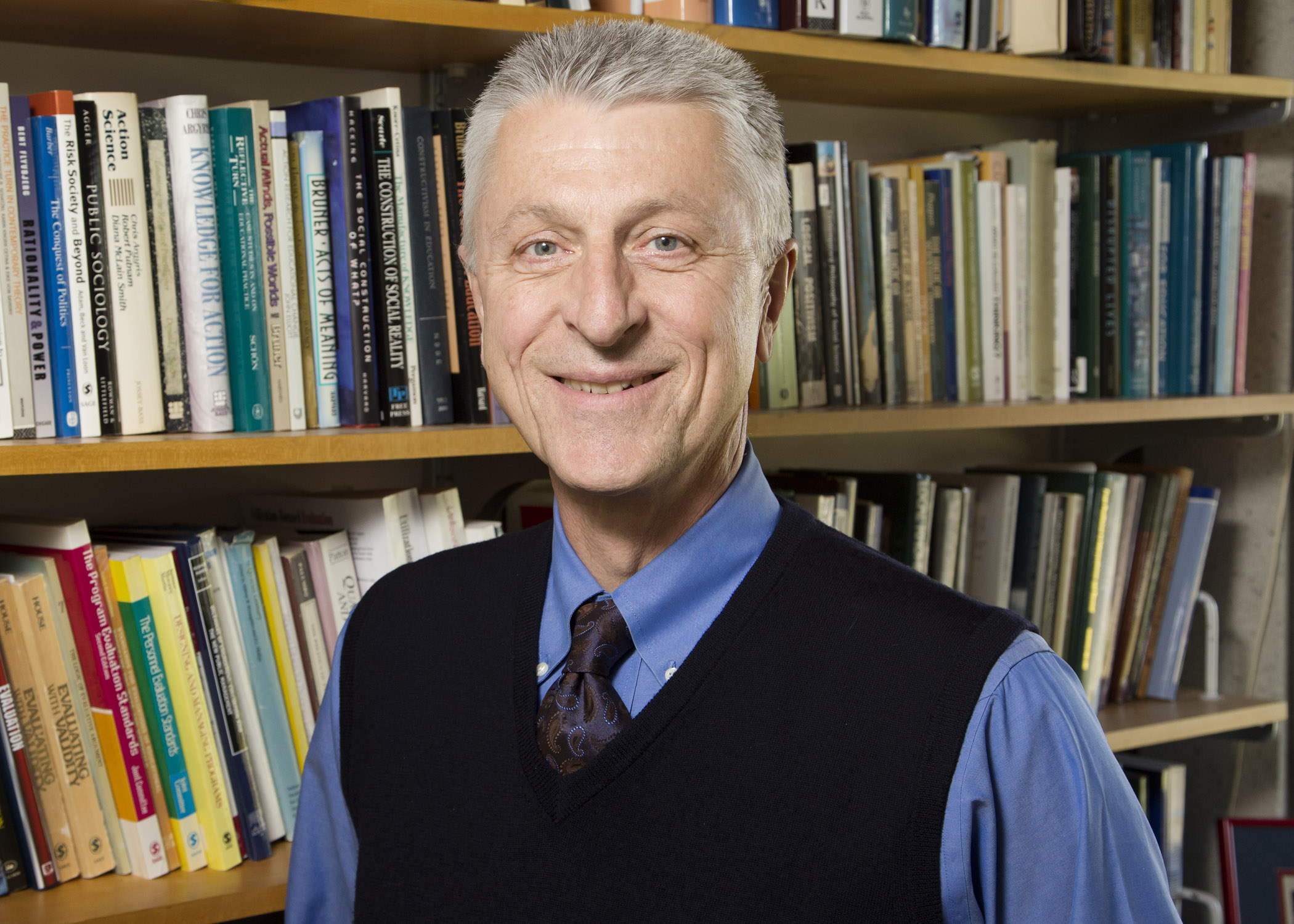A Minute With: Professor Tom Schwandt on science and public policy
by Sharita Forrest / Nov 14, 2012

NOV. 14, 2012, UI NEWS BUREAU, CHAMPAIGN, Ill. — Elected officials are called upon to address all types of complex issues – often with numerous constituencies offering what they believe is compelling scientific evidence that supports a particular course of action. Thomas Schwandt is a member of the National Research Council Standing Committee, which explored the use of social science knowledge in policymaking. Schwandt spoke with News Bureau reporter Sharita Forrest about the committee’s work and its recently released report, “Using Science as Evidence in Public Policy.” Schwandt is a professor in the department of educational psychology at the University of Illinois.
What’s the impetus for this project?
Scientific information reaches policymakers through a variety of means – knowledge translation strategies, brokering and intermediaries such as think tanks. But we don’t really know which strategies or factors work best and in what circumstances.
All of these strategies try to bridge the gap between researchers and policymakers, the producers and users of knowledge, but the gap persists. Therefore, the committee felt it was time to take a fresh approach to the study of knowledge use.
The committee was composed of social-behavioral scientists from different disciplines, including economics, political science, psychology and sociology, science and technology studies and statistics. A noted philosopher of science also was a committee member.
The committee convened several workshops and discussion sessions, consulted with policymakers on how they understood the use of science in their work and examined the extensive literature on knowledge utilization and the circumstances that affect the use of scientific research.
In its report, the committee makes a distinction between evidence-based policy and evidence-influenced policy. What’s the difference?
Whether intended or not, the term “evidence-based policy” conveys the impression that when people have the information in hand, they’ll clearly know what is the wisest course of action. It’s a little bit like saying, “If you build it, they will come.”
If we want to know whether, how and why scientific evidence is used in policymaking, then we need to better understand how evidence enters into policy arguments.
Having credible scientific evidence in hand is necessary but not sufficient because policymaking involves value judgments as well as scientific concerns.
Therefore, we think evidence-influenced policy is the more appropriate term.
How amenable are officials to using social science research as the basis for public policies?
We know that a variety of factors affect use, including the timeliness of the research, how well it fits into current policy discussions, its perceived credibility and the clarity with which it’s communicated.
The framework that the committee developed centered on three ideas:
- Scientists need to better understand how scientific evidence is used in a policy argument that is a mixture of facts, values and political considerations. We also need to better understand what makes for valid, credible and compelling policy arguments from the perspectives of policymakers; what makes for a good or misleading policy argument and how arguments persuade, even if they’re incorrect and based on bad data.
- Because policymaking usually involves multiple decision makers, we need to better understand the processes of collective decision-making and collaborative rationality – that is, how groups make decisions, the reasoning processes they employ and the kinds of reasoning errors they are prone to.
- The growing awareness of the importance of taking a systems perspective in policy arenas such as public health led us to suggest that more attention needs to be paid to exploring the utility of concepts and tools from this broad arena in the design, examination and appraisal of interventions.
A system perspective suggests a different mindset. It helps both researchers and policymakers consider the many effects a policy may have and its interactions with other interventions and institutional practices.
What are the implications of the committee’s work?
Our report suggests areas of research that we believe will contribute to social scientists’ understanding of the use of science in public policy.
For schools of public policy that prepare people for careers in the policy enterprise, we suggest examining the curricula and whether students are being adequately prepared to address the realistic, everyday problems encountered in applying scientific evidence – with all its imperfections and gaps – to policy problems.
We need to help students in these programs better understand not only issues related to the quality and quantity of scientific research made available to the policy process but also whether and how it is used – and why in some cases it’s ignored.
A Minute with… is provided by the News Bureau | Public Affairs as a venue for Illinois faculty experts to comment on current topics in the news. Faculty experts on a wide range of socially important topics are available to news media through the News Bureau, (217) 333-1085.